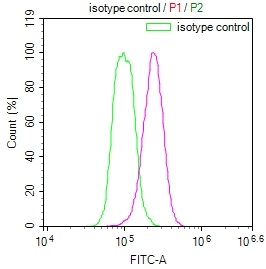GMIP Antibody, Biotin conjugated
-
中文名称:GMIP兔多克隆抗体, Biotin偶联
-
货号:CSB-PA878952LD01HU
-
规格:¥880
-
其他:
产品详情
-
产品名称:Rabbit anti-Homo sapiens (Human) GMIP Polyclonal antibody
-
Uniprot No.:
-
基因名:GMIP
-
别名:ARHGAP46 antibody; GEM interacting protein antibody; GEM-interacting protein antibody; GMIP antibody; GMIP_HUMAN antibody
-
宿主:Rabbit
-
反应种属:Human
-
免疫原:Recombinant Human GEM-interacting protein (719-858AA)
-
免疫原种属:Homo sapiens (Human)
-
标记方式:Biotin
-
克隆类型:Polyclonal
-
抗体亚型:IgG
-
纯化方式:>95%, Protein G purified
-
浓度:It differs from different batches. Please contact us to confirm it.
-
保存缓冲液:Preservative: 0.03% Proclin 300
Constituents: 50% Glycerol, 0.01M PBS, PH 7.4 -
产品提供形式:Liquid
-
应用范围:ELISA
-
Protocols:
-
储存条件:Upon receipt, store at -20°C or -80°C. Avoid repeated freeze.
-
货期:Basically, we can dispatch the products out in 1-3 working days after receiving your orders. Delivery time maybe differs from different purchasing way or location, please kindly consult your local distributors for specific delivery time.
-
用途:For Research Use Only. Not for use in diagnostic or therapeutic procedures.
相关产品
靶点详情
-
功能:Stimulates, in vitro and in vivo, the GTPase activity of RhoA.
-
基因功能参考文献:
- These findings demonstrate a new role of Gem/Gmip/RhoA signaling in cortical actin regulation during early mitotic stages PMID: 25173885
- during exocytosis, actin depolymerization commences near the secretory organelle, not the plasma membrane, and secretory granules use a JFC1- and GMIP-dependent molecular mechanism to traverse cortical actin. PMID: 22438581
- signalling pathways controlled by two proteins of the Ras superfamily, RhoA and Gem, are linked via the action of the RhoGAP protein Gmip PMID: 12093360
- Variations in the GMIP gene can confer susceptibility to major depressive disorder. PMID: 16086184
-
数据库链接:
Most popular with customers
-
-
YWHAB Recombinant Monoclonal Antibody
Applications: ELISA, WB, IHC, IF, FC
Species Reactivity: Human, Mouse, Rat
-
Phospho-YAP1 (S127) Recombinant Monoclonal Antibody
Applications: ELISA, WB, IHC
Species Reactivity: Human
-
-
-
-
-



















